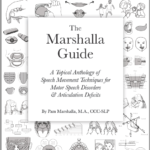When does a Middle School Child need a Speech and Language Evaluation

By law every child who receives special education services has to have a Core Evaluation every three years. Depending on the child’s current needs and services it is not unusual for psychological testing or IQ testing be eliminated from that years test battery. We don’t always expect big changes with IQ over time. However, Speech and Language testing should be included in every three year reevaluation where the student currently receives therapy. During the middle school years the hope is that language will develop in leaps and bounds, even in children with language disabilities,. Think of how much a child grows and matures during the middle school years. Changes in a child’s language understanding and usage should be equally as dramatic. The middle school student should be developing higher order language skills that are important life skills. It happens naturally in children without disabilities but may not happen in children who have a language disability or history of a language disability.
It is somewhat rare that a middle school age student with no history of language or learning disabilities will suddenly need a speech and language evaluation. However, there is a huge bump in expectations for both academics and language in 7th grade. This is usually when issues may arise. Children who were discharged from speech and language services in grade school will often come across the speech language pathologist’s desk again in 7th grade.
If you’re concerned about your child, perhaps they are unable to maintain their grades, seem stressed out over school, can’t seem to grasp new concepts, unable to reason with adults and peers, behavioral issues are emerging or you just have a feeling something isn’t right, go and talk to their teacher immediately. Do not wait for things to get worse, do not assume they will get better.
Your next steps will depend on the teacher’s reaction, did they make time for you, did they take your concerns seriously, did they offer solutions or strategies to implement in the classroom, did they say they would bring your concerns to the student support team (or whatever it is called at your school, this is the first step in the Response to Intervention or RTI process). If you’re not happy with the results of that meeting or you don’t see positive changes over a 3-6 week period bring your concerns to the Principal. Also during that 3-6 week period you can ask for the speech language pathologist, learning specialist or school psychologist to observe your child in the classroom as part of the RTI process and have them make specific recommendations. Observation alone can often point remediation in the right direction by either giving suggestions for classroom accommodations or moving the evaluation process along quickly because of specific concerns. Make sure too much time doesn’t pass and establish communication with the teacher or school. You might have to initiate contact and follow up. It’s also your responsibility to communicate with your child and find out how they are feeling about all this.
It is always good to go through proper channels and start with the least restrictive interventions. However, under the law you can request an evaluation at any time. Districts might have a different way to initiate an evaluation but usually a letter to the Special Education Director expressing your concerns will get the process started.
At the middle school level a Speech and Language Evaluation is usually just a part of a core evaluation, perhaps along with academic or psychological testing. Areas of assessment depend on a child’s specific needs. Below is a list of guidelines that will help you determine if your middle school child may need a speech and language evaluation.
- When there is an earlier history of speech and language issues and student received services in the past.
- Early or chronic history of ear infections
- Difficulty with overall comprehension
- Difficulty with higher level vocabulary
- Difficulty generating ideas or organizing language
- Not being able to respond quickly to questions
- Frequently misunderstanding directions
- Significant reading difficulties involving comprehension and decoding
- Difficulty with reasoning or understanding another’s perspective
- Difficulty understanding new concepts presented within the classroom setting
- Behavioral issues, especially not getting along with peers
- Not understanding kid type jokes and humor
Many of the concerns listed above focus on higher order language development. In most children it develops so naturally that we rarely even notice. It’s only when kids get a little older that the lack of these skills become noticeable in both academic and social settings. It’s important to be as proactive during the middle school years as you would have been during the preschool years if your child wasn’t learning to speak.
Teresa Sadowski MA/SLP-ccc
January 2012







